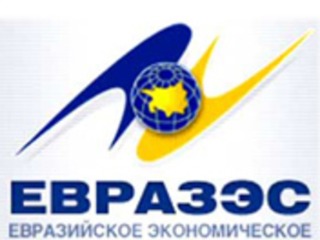SocioEconomic Situation in Kazakhstan's West Remains Unstable
By Georgiy Voloshin (the 11/12/2013 issue of the CACI Analyst)
After the violent riots of oil industry workers rocked in Kazakhstan’s Zhanaozen in December 2011, marring the celebration of the 20th anniversary of the country’s independence, Kazakhstani authorities have been at pains to stabilize the situation there. According to official figures presented this September, the government has since January 2012 allocated some US$ 90 million for socioeconomic needs in the Mangistau region, where riot police killed at least 14 people and wounded over 100 others during the Zhanaozen protests. Most of the funds have been directed to the creation of new jobs and the implementation of social support programs, for instance in establishing the necessary infrastructure.
“CACI Analyst, November 27, 2013”
Kazakhstan Increasingly Concerned over Eurasian Economic Union
By Stephen Blank (the 27/11/2013 issue of the CACI Analyst)
Kazakhstan joined the Customs Union with Belarus and Russia in 2010 and by 2012, it had evolved into a single Eurasian Economic Space known also as EurAsEc. The economic union is Putin’s principal foreign policy goal and Ukraine in the West and Kazakhstan in the East are particularly important to the success of this enterprise. Yet, while Ukraine was poised to instead sign a trade agreement with the EU at the Eastern Partnership summit in Vilnius on November 28-29, it has stopped preparing for that signing ceremony, evidently succumbing to Russian pressure. Meanwhile, Kazakhstan has now registered increasingly vocal complaints about the direction EurAsEc is taking.

Russia and Kazakhstan Clinch “Alliance for the 21 Century”
By Georgiy Voloshin (the 27/11/2013 issue of the CACI Analyst)
On November 11, the presidents of Russia and Kazakhstan, Vladimir Putin and Nursultan Nazarbayev, met in the Russian city of Yekaterinburg within the framework of the Tenth Regional Cooperation Forum. This bilateral structure aims to develop closer economic and trade relations between Russia’s and Kazakhstan’s border regions, especially in the context of growing integration ties between the two countries. While the general state of Russian-Kazakhstani partnership was the major topic of official discussions, this gathering enabled the signing of a new bilateral treaty known as the Treaty for good-neighborliness and alliance in the 21 century.
Russia Advances Its Position in the South Caucasus
By Armen Grigoryan (the 13/11/2013 issue of the CACI Analyst)
Russia continues to limit Armenia’s capability to make independent political decisions and is planning to increase its military presence in Armenia. Shortly, Azerbaijan and Georgia will face stronger pressure and Russia’s efforts to create a new union of the former Soviet republics will intensify. As Russia is unable to advance its goals through “soft power,” offering no attractive model of governance, democratic political culture, or serious economic benefits, it will increasingly rely on “hard power.” Regional policies devised by the U.S. and EU are becoming insufficient as regional dynamics change and new threats emerge.






 Book S. Frederick Starr and Svante E. Cornell,
Book S. Frederick Starr and Svante E. Cornell,